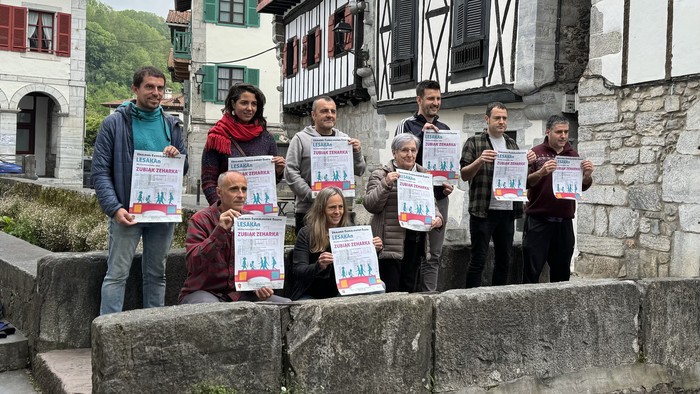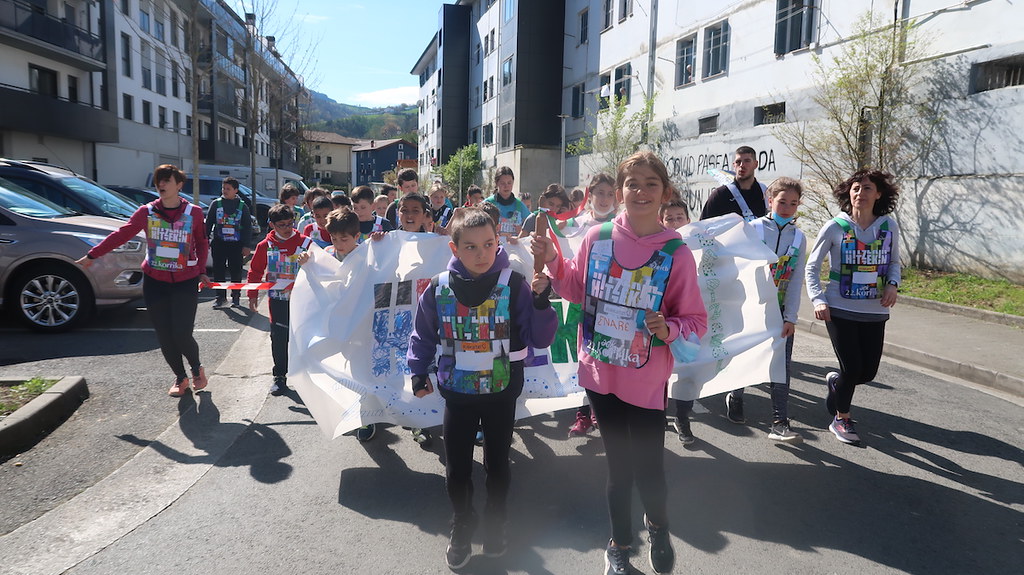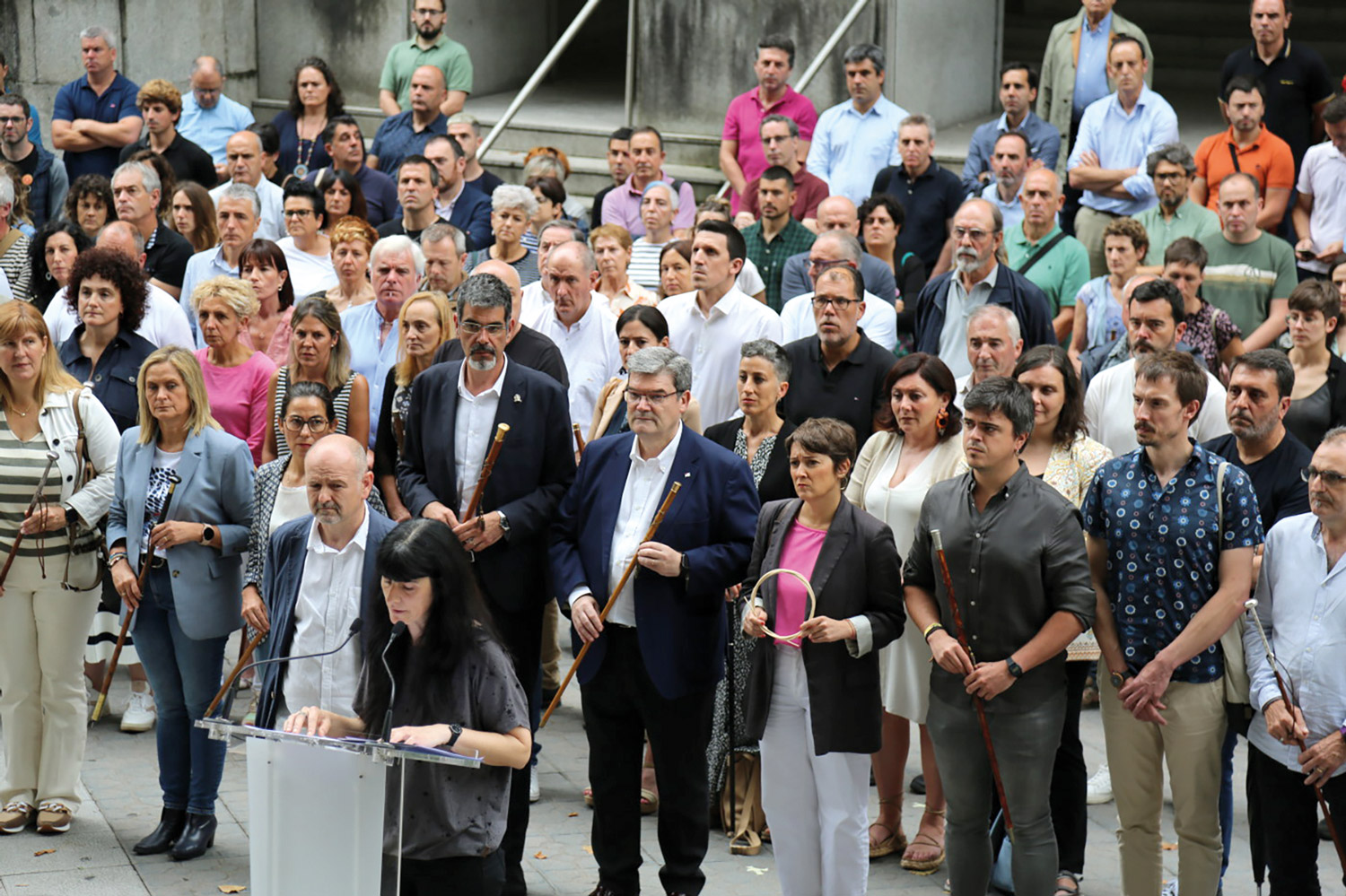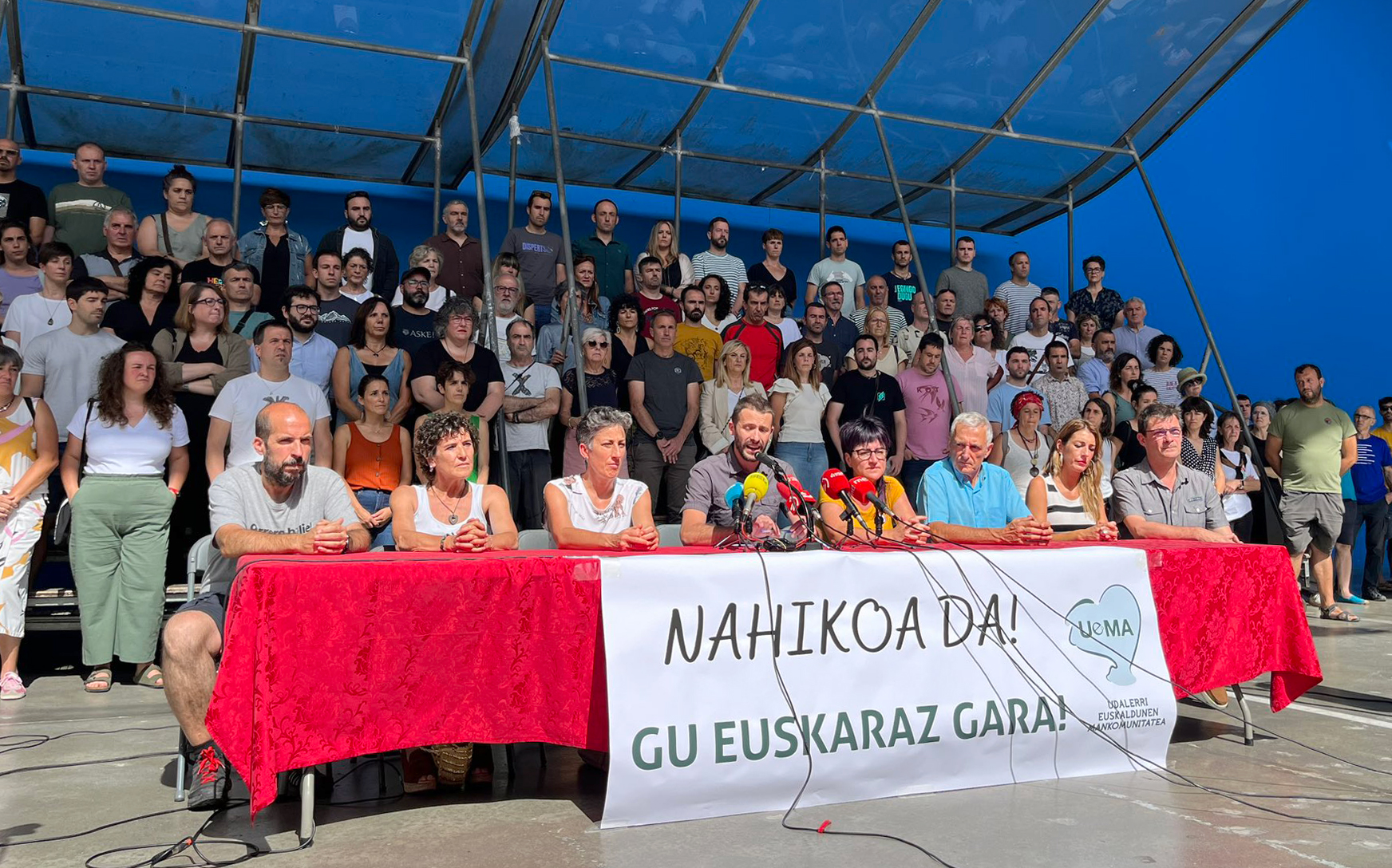Two out of five pediatricians from the towns of UEMA do not have an accredited Euskera
- The UEMA has analyzed the health service of the peoples of the Commonwealth of Basque Municipalities and has concluded that three out of ten health workers work without attesting the Basque level. Research shows that there has been no significant progress in recent years.

101 municipalities in Araba, Bizkaia, Gipuzkoa and Navarre with an Euskaldunization rate above 70% still do not guarantee the provision of health services in Basque. This is demonstrated by the report presented by the community of Basque municipalities UEMA. It has analyzed the data in more detail than in previous studies, in relation to the competence in Basque health personnel, and the main conclusion is that there has been no “clear evolution” in the linguistic knowledge of workers.
The authors have identified some deficiencies, highlighting the pediatric area, in which the knowledge of Euskera is required of the majority of health workers who attend children, but fewer are accredited. As for health centers, all levels of Euskera are required, but two in five pediatricians do not have accreditation. The municipalities of UEMA have 45 places of pediatrics and 11 unfilled (24%), being the specialty with the greatest shortage than the other places. They warn in the report that the lack of substitution is a “serious problem”: “The context of lack of professionals should not be used to leave language rights in the background: it is the obligation of the institutions to guarantee these rights”.
Beyond pediatrics, the general photography of health personnel also presents important gaps, according to the UEMA study. The work has been divided into three layers: the first is the 64 health centers and emergency services of the 101 municipalities members of the community, the second the 25 health centers that serve the villages of UEMA and the third the eleven referral hospitals corresponding to the municipalities of UEMA. In some localities there is no health center and you have to go to the centers of the area to receive the service. Well, the second and third layers have been the ones that present the worst result in Basque care.
Osasunbidea, worse than Osakidetza
The total number of jobs in UEMA health centres is 821, Osakidetza 669 and Osasunbidea 152. In 714 of them, knowledge of Euskera is compulsory (87%), but workers who occupy 30% of the jobs have not proven their training, almost one in three workers. There are differences between the two public networks: Of the 669 jobs in Osakidetza, 663 have applied for the Basque level (99%), and one in five has not accredited it (19%), while of the 152 jobs in Osasunbidea only 51 (34%) require it, and three in four have not proven aptitude (75%).
The difference between the two networks increases in services outside the municipalities of UEMA. In general, in both cases the percentage of jobs with knowledge of Euskera is lower, but especially in Osasunbidea, due, among other factors, to the zoning of Navarra. In hospitals, almost half of the posts in Osakidetza have to meet the Basque level (it has risen above all in the last two years); in Osasunbidea it does not reach 1%. Moreover, two-thirds of hospital staff are not accredited (57 per cent in Osakidetza and 99 per cent in Osakidetza).
Structural measures to guarantee the Basque Country
Faced with this disastrous situation, UEMA calls for structural decisions to be taken to “guarantee the linguistic rights of citizens and be able to attend in Basque”. The University recalls that they are “a basic foundation” for training future health professionals in Basque and warns that there are “significant gaps”. The Commonwealth proposes the development of care circuits in Basque and measures to influence their use. Ask for more work in Navarra: “The previous step is missing because the vast majority of jobs do not even require the knowledge of the Basque Country.”
Hamahiru ZirHika kide batu dira hitanoaren erabilera aldarrikatzeko eta antolakundearen ekintzen berri emateko. Azalpenak Badihardugu elkarteko Idoia Etxeberria eta Galtzaundiko Uxoa Elustondok egin dituzte. Horiei, Andoni Egaña eta Amaia Agirre bertsolariak eta... [+]
"Zubiak zeharka” lemapean, egun osoko egitaraua prestatu dute UEMA eguna ospatzeko. Herriko eragile guztiek hartu dute parte programaren prestaketan eta ekimen herrikoi eta partehartzailea izatea lortu dute horrela.






















